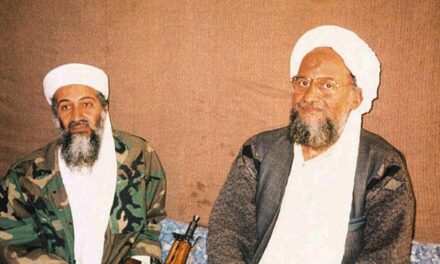Policy of Likud in Israel under continuous leadership, especially by war criminals Ariel Sharon, Ehud Olmert and Benjamin Netanyahu.
The world was right about Iraq- though Israel got its ‘Clean Break’
(Mondoweiss) June 15, 2014 – In most circumstances, “We told you so” is a classless statement. But in this case, it’s justified. In 2003, in the largest global protest in human history, millions of us marched in the world’s streets, loudly proclaiming that invading Iraq would be an unmitigated disaster. Meanwhile, Israel’s neocon loyalists achieved exactly what they wanted: a perpetual nightmare of internecine conflict. While Richard Perle, Douglas Feith and David Wurmser dreamt up the ‘Clean Break’ war in 1996, long before the Second Intifada, surely part of the motivation to pull the trigger was revenge for Saddam Hussein’s financial support for Palestinian suicide bombers [according to Rumsfeld]. {Hardly mentioned Saudi financial support for Palestinian mujahideen and to families of intifada martyrs – Oui]
Owen Jones writes in The Guardian:
The catastrophic results of the Iraq invasion are often portrayed as having been impossible to predict, and only inevitable with the benefit of hindsight. If only to prevent future calamities from happening, this is a myth that needs to be dispelled. The very fact that the demonstration on that chilly February day in 2003 was the biggest Britain had ever seen, is testament to the fact that disaster seemed inevitable to so many people…
The commentators who cheered on the conflict, far from being driven from public life are still feted: still writing columns, still dispensing advice in TV studios, still hosting thinktank breakfasts…
Meanwhile, Israel’s American neocon supporters got exactly what they wanted: a reshaping of the Middle East through pre-emptive warfare, imposed destabilization, and chaos. Brian Whitaker in The Guardian:
For the hawks, disorder and chaos sweeping through the region would not be an unfortunate side-effect of war with Iraq, but a sign that everything is going according to plan. In their eyes, Iraq is just the starting point – or, as a recent presentation at the Pentagon put it, “the tactical pivot” – for re-moulding the Middle East on Israeli-American lines.
…
Its roots can be traced, at least in part, to a paper published in 1996 by an Israeli thinktank, the Institute for Advanced Strategic and Political Studies. Entitled “A clean break: a new strategy for securing the realm”, it was intended as a political blueprint for the incoming government of Binyamin Netanyahu. As the title indicates, it advised the right-wing Mr Netanyahu to make a complete break with the past by adopting a strategy “based on an entirely new intellectual foundation, one that restores strategic initiative and provides the nation the room to engage every possible energy on rebuilding Zionism …”The paper set out a plan by which Israel would “shape its strategic environment”, beginning with the removal of Saddam Hussein and the installation of a Hashemite monarchy in Baghdad.
Coming Soon: “Total War” On the Middle East by Jason Vest
(AlterNet) Aug. 28, 2002 – Almost thirty years ago, a prominent group of neoconservative hawks found an effective vehicle for advocating their views via the Committee on the Present Danger, a group that fervently believed the United States was a hair away from being militarily surpassed by the Soviet Union, and whose raison d’être was strident advocacy of bigger military budgets, near-fanatical opposition to any form of arms control and zealous championing of a Likudnik Israel. Considered a marginal group in its nascent days during the Carter Administration, with the election of Ronald Reagan in 1980 CPD went from the margins to the center of power.
Just as the right-wing defense intellectuals made CPD a cornerstone of a shadow defense establishment during the Carter Administration, so, too, did the right during the Clinton years, in part through two organizations: the Jewish Institute for National Security Affairs (JINSA) and the Center for Security Policy (CSP). And just as was the case two decades ago, dozens of their members have ascended to powerful government posts, where their advocacy in support of the same agenda continues, abetted by the out-of-government adjuncts from which they came. Industrious and persistent, they’ve managed to weave a number of issues — support for national missile defense, opposition to arms control treaties, championing of wasteful weapons systems, arms aid to Turkey and American unilateralism in general — into a hard line, with support for the Israeli right at its core.
On no issue is the JINSA/CSP hard line more evident than in its relentless campaign for war — not just with Iraq, but “total war,” as Michael Ledeen, one of the most influential JINSAns in Washington, put it last year. For this crew, “regime change” by any means necessary in Iraq, Iran, Syria, Saudi Arabia and the Palestinian Authority is an urgent imperative. Anyone who dissents — be it Colin Powell’s State Department, the CIA or career military officers — is committing heresy against articles of faith that effectively hold there is no difference between US and Israeli national security interests, and that the only way to assure continued safety and prosperity for both countries is through hegemony in the Middle East — a hegemony achieved with the traditional cold war recipe of feints, force, clientism and covert action.
For example, the Pentagon’s Defense Policy Board — chaired by JINSA/CSP adviser and former Reagan Administration Defense Department official Richard Perle, and stacked with advisers from both groups — recently made news by listening to a briefing that cast Saudi Arabia as an enemy to be brought to heel through a number of potential mechanisms, many of which mirror JINSA’s recommendations, and which reflect the JINSA/CSP crowd’s preoccupation with Egypt. (The final slide of the Defense Policy Board presentation proposed that “Grand Strategy for the Middle East” should concentrate on “Iraq as the tactical pivot, Saudi Arabia as the strategic pivot [and] Egypt as the prize.”)





